Prince of Persia
Top of the POPs?
Ben Mattes, producer of Prince of Persia, can talk. Boy can he talk. But as one of the senior figures at Ubisoft Montreal, the studio responsible for the likes of Splinter Cell, Rainbow Six and Assassin's Creed, what he has to say is worth hearing - and there is a lot to say about what Mattes calls the "second reinvention" of Jordan Mechner's classic fantasy series, following on from the last-generation trilogy that encompassed Sands of Time, Warrior Within and The Two Thrones.
Ambition is a horribly overused term; inappropriately so by publishers, lazily by the press, us included. But as a collective creative force, Ubisoft Montreal's output, for better or worse, is a worthy recipient of the label. This is a studio genetically engineered to think big. It's the publisher's largest single creative force, 1,600 employees strong and counting with, according to a company rep, "20-something projects" in the works.
But thinking big, of course, doesn't always equal best. And Assassin's Creed, for all its astonishing technical achievements, was ultimately undone by its own vaulting ambition.
Yet, in spite of its failings as a game, its contribution to the collective has been crucial. Prince of Persia wouldn't exist without Assassin's Creed (and vice versa, if we're being pedantic). This is true both literally, in the sense that POP uses a modified version of the same engine, and conceptually, the Prince's latest caper representing the next link along in the evolutionary chain of the action-adventure.
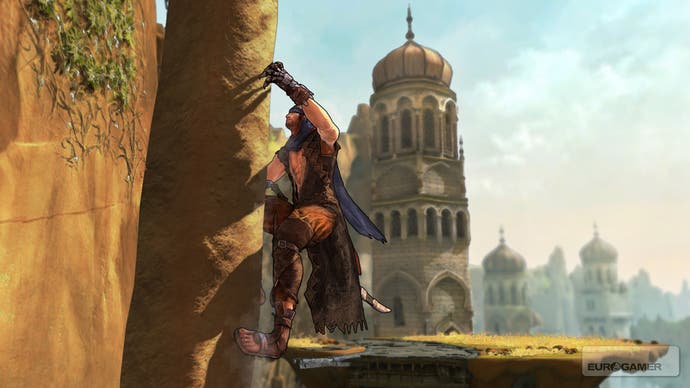
So when we probe Mattes on the nature of Prince of Persia, he reels off at great length what amounts to the studio's thesis on the future of the action-adventure. He cites Capcom's Resident Evil 4 as a marker in terms of what he believes POP represents in this generation. "There's not really a single back-of-the-box feature that anyone will say 'that's what defines that game'. What made Resident Evil 4 so spectacular was the respect they paid to every single combining element to that overall experience."
It's not hard to guess which title Mattes might be thinking of when he adds: "We don't want to sell it as 'crowd' or 'open world' or 'great combat system'. All of those things wear off really quickly. This is a game where the full experience is so much more than any of its individual components. It's a unique, mature gaming experience."
Well, he would say that. But his argument hinges on the belief that Prince of Persia will deliver what, in the team's eyes at least, no-one else yet has: an experience that combines the freedom of an open-world game with the focused action and narrative development of a traditional third-person adventure.
Assassin's Creed, for instance, fails because its freedom is too daunting for the casual user. "The really advanced players get great flow, but casual players jump, stop, look. Jump, fall, die, start over. They don't get the same flow and it sucks," he argues.
But where Assassin's had the luxury of being a brand new property, unconstrained by any particular precedents or expectations, Prince of Persia self-evidently does not, and the team's structural head-scratching stems as much from the need to satisfy gamers' expectations as its own creative urges.
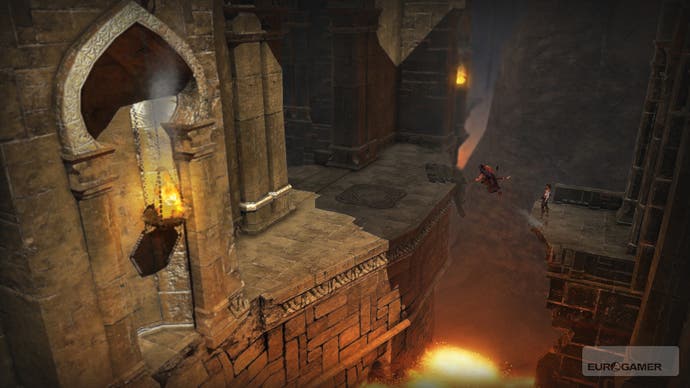
The starting point is straightforward enough. "Prince of Persia is a young, acrobatic warrior saving the world through his agility and combat prowess in fantastic environments against overwhelming odds," reckons Mattes. "That's Prince of Persia. Everything else is just a layer of paint."
He also acknowledges that POP "is a brand where people really care about the characters; really care about the story". Something that is "usually not a strength" in open-world games, where character development and storyline are "sacrificed in order to have more player control. That's not something we could do on Prince of Persia."
The team's solution, then, is a "world structure that allows the best of both worlds": a "hybrid". To help us understand what he means, Mattes asks us to "look at Europe from a bird's eye view and break it down to its most simple, basic elements. You've got major cities - London, Paris - then the highways connecting them, nothing else.
"What you effectively have is a network. If I'm in London and I want to go to Prague, I have to first go to Paris; then theoretically I could go all the way down to the south of Spain on my way. But once I've made the decision and I'm on that highway, it's linear, it's directed. Then when I get to Prague it's choice time: do I go left, do I go right etc."
That, in short, is how Prince of Persia functions. Multiple open-world regions connected by linear, tightly scripted routes in the spirit of its predecessors. "What that allows us to do is have this world with lots of choice, but we can make sure that even a casual player can have great flow."

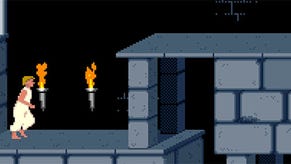

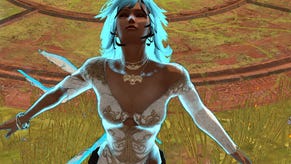
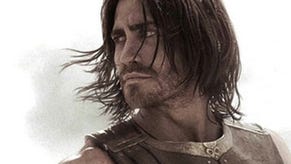



.png?width=291&height=164&fit=crop&quality=80&format=jpg&auto=webp)



